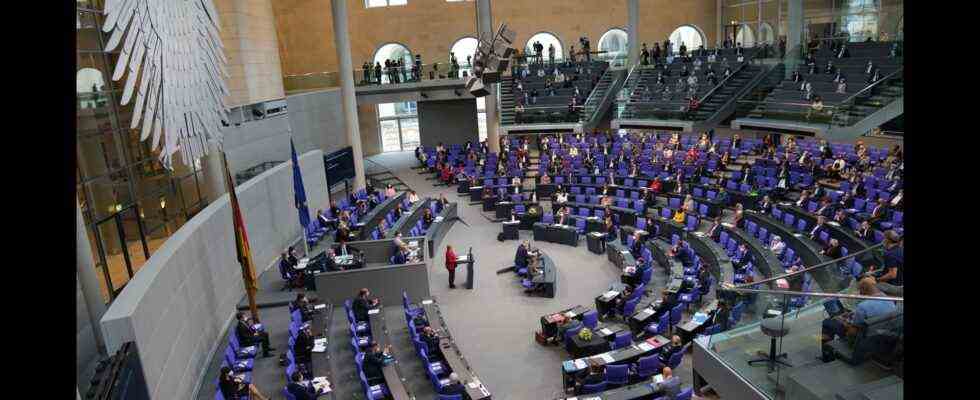As of: 09/08/2021 2:32 p.m.
Citizens can use Parliament’s Watch to directly interview candidates during the current election campaign. There is great interest – but almost every second question remains unanswered.
Already two and a half weeks before the federal election, more questions were activated on the platform Abmachenwatch than in the entire election campaign four years ago. So far, citizens have already submitted more than 11,000 questions on parliament watch – of which more than 9,000 have been approved. For the 2017 federal election, there were a total of 8911 approved questions.
In July, parliament watch had set the goal of asking around 9,000 questions, as in the election four years ago. A quota of 80 percent was targeted for the answers. This target has been clearly missed so far: of the more than 9,000 approved questions, only 5217 were answered.
CDU at the bottom
Among the parties represented in the Bundestag, Die Linke answered 579 of 837 questions in the current election campaign – and thus achieved the highest rate of 69 percent. Candidates from the Greens answered 963 of 1,748 questions (55 percent), the FDP currently has 462 of 870 answered questions (53 percent) and the SPD 716 of 1,376 questions (52 percent).
The CSU candidates have fewer than half of the questions (135 of 285 questions, which corresponds to 47 percent). It is followed by the AfD with 45 percent (245 answers to 541 questions) before the CDU with 43 percent (575 to 1,348 questions).
Brinkhaus at 99 percent
However, there are considerable differences between the candidates for the parties. So on the profile of the CDU politician and parliamentary group leader Ralph Brinkhaus 347 of 351 questions already answered – a rate of 99 percent. Peter Altmaier provided information on 326 of 385 inquiries.
Of the CDU direct candidate and ex-constitution protection chief Hans-Georg Maaßen so far, however, only responded to one of nine questions, Herrmann Gröhe even none of 34. In the profiles of the politicians who are already sitting in the Bundestag, the questions and answers of the current legislature and the current election are added together.
Laschet and Scholz do not use the platform
With the candidate for the Chancellery lies Annalena Baerbock from the Greens with 928 of 1205 answered questions at the top. For the SPD candidate Olaf Scholz (117 questions) and the Union candidate Armin Laschet (234 questions) does not matter to MPs: all questions have so far remained unanswered.
The story of parliament watch began at the end of 2004 in Hamburg, for the state elections in the Hanseatic city, other federal states followed – as well as offers for European and federal elections. The site is operated by the Parlamentwatch eV association, which claims to be financed exclusively through donations.
Parliament Watch also analyzes large donations to political parties. Together with the “Spiegel”, the initiative evaluated the data published by the Bundestag – and came to the conclusion: In the election year 2021 there have been so many large donations to political parties as never before since the disclosure requirement was introduced in 2002. Until August 26th alone – one Month before the federal election – 56 large donations with a total value of 8.4 million euros were reported.
Focus on lobbying activities
In addition, parliament watch documents voting behavior in parliaments – such as the Use of German soldiers in Afghanistan – and clarifies about lobbying activities: So reports the portal currently about confidential documents that showed that the former Vice Chancellor Sigmar Gabriel spoke to Chancellor Merkel in April 2020 for a concern of Deutsche Bank.
Similar to what the Wahlomat offers MP watch also has a function with which one’s own positions can be compared with those of parties.
“More attention”
A spokeswoman shared on request from the high number of questions tagesschau.de with, the current election generally attracts more attention. The background is, among other things, the open race and important future issues in the election campaign.
In addition, there are more direct candidates than four years ago. The number rose from 2559 to 3360. This also affects the number of questions. With regard to the relatively few responses, the spokeswoman said that experience has shown that many responded shortly before the election. In addition, many questions are complex, so it can take some time to answer.

